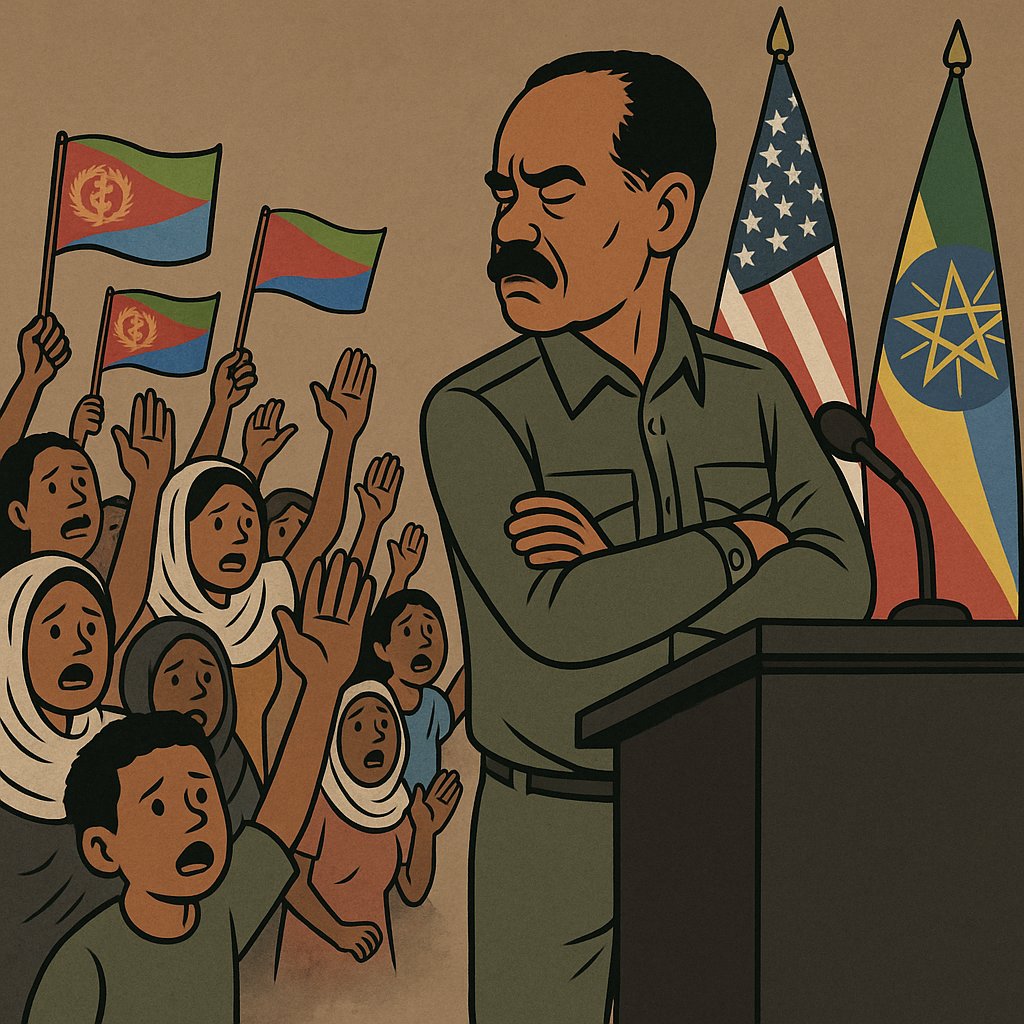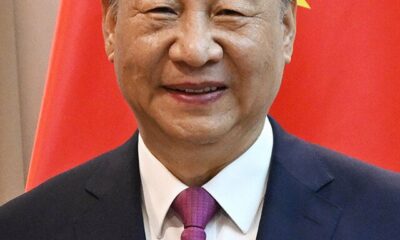News
Eritrea’s Afwerki Warns of War as Ethiopia Eyes the Red Sea

Red Sea flashpoint revives fears of war between old foes
Tensions between Ethiopia and Eritrea have once again flared, with Eritrean President Isaias Afwerki issuing a stark warning to his neighbour on 20 July 2025. His message: any move by Ethiopia to force access to a Red Sea port could mean war.
Afwerki’s comments come amid growing anxiety that Ethiopia, a landlocked giant of over 120 million people, may be preparing to take drastic steps to secure a coastline — steps that would bring it head-to-head with Eritrea. “We will resist any human wave strategy,” the president declared, referring to Ethiopia’s population advantage.
But underneath the strong rhetoric lies a deeper worry: that the Horn of Africa may be spiraling back toward open conflict.
A Bitter History Still Lurks Beneath the Surface
For those familiar with the region’s painful past, the current saber-rattling is hauntingly familiar. Eritrea and Ethiopia fought a brutal border war from 1998 to 2000 that killed tens of thousands and froze relations for nearly two decades.
Though the two nations declared peace in 2018 — a move that earned Ethiopian Prime Minister Abiy Ahmed a Nobel Peace Prize — trust never fully returned. Eritrea’s president has accused Abiy of using the Red Sea issue to distract from Ethiopia’s spiraling domestic crises, including political fragmentation, ethnic militias, and recent clashes with the Fano militia in Amhara.
And while Abiy talks peace publicly, many believe he’s playing a different game behind the scenes.
Tigray: A Warzone That Refuses to Heal
Despite the 2022 Pretoria Agreement calling for the withdrawal of all non-Ethiopian federal forces from Tigray, Eritrean troops are reportedly still operating there. Their presence has been described as destabilising by local leaders and international observers.
Getachew Reda, Tigray’s interim president, insists his administration is not seeking conflict, calling instead for calm. Yet mistrust remains, worsened by reports from The Sentry alleging that Eritrean forces looted factories, smuggled gold and antiques into Eritrea, and used the profits to fund operations in the region.
That economic exploitation — combined with Eritrea’s continued military footprint — is stoking fears that the Pretoria peace deal could unravel completely.
The Geopolitical Web: More Than Just a Border Dispute
The Horn of Africa is a powder keg. Ethiopia’s ambitions to reclaim a route to the sea have implications that stretch far beyond Eritrean borders. With Sudan teetering on the edge of civil collapse, Somalia still reeling from decades of instability, and rebel movements simmering across Ethiopia, the stakes are dangerously high.
Analysts like Gerrit Kurtz (SWP) and William Davison (International Crisis Group) suggest that Eritrea benefits from Ethiopia’s internal chaos. It’s a bold theory — one Eritrean officials deny — but it’s gaining traction.
There’s also speculation that Abiy may be leveraging these tensions to shore up domestic support ahead of Ethiopia’s 2026 elections, where his political standing has grown precarious.
What’s the Path Forward?
Calls for diplomacy have grown louder, with the African Union, United Nations, and IGAD urging all parties to step back from the brink. But diplomatic fatigue is real. Many feel the Pretoria Agreement was never fully honoured. Disarmament remains incomplete. Regional players are divided.
In a part of the world where war often feels like the default mode of politics, the question looms: can peace ever really hold?
A Region Holding Its Breath
In the streets of Asmara and Addis Ababa, citizens have seen this story before. On social media, Eritrean and Ethiopian users traded blame while pleading for peace. “Not again,” one post read, echoing the sentiment of many who watched loved ones vanish in the last war.
The Horn of Africa doesn’t need another war. It needs healing, transparency, and leaders brave enough to resist the call of nationalism.
Whether Afwerki and Abiy are those leaders remains to be seen.
Source:The South African
Follow Joburg ETC on Facebook, Twitter , TikTok and Instagram
For more News in Johannesburg, visit joburgetc.com



























